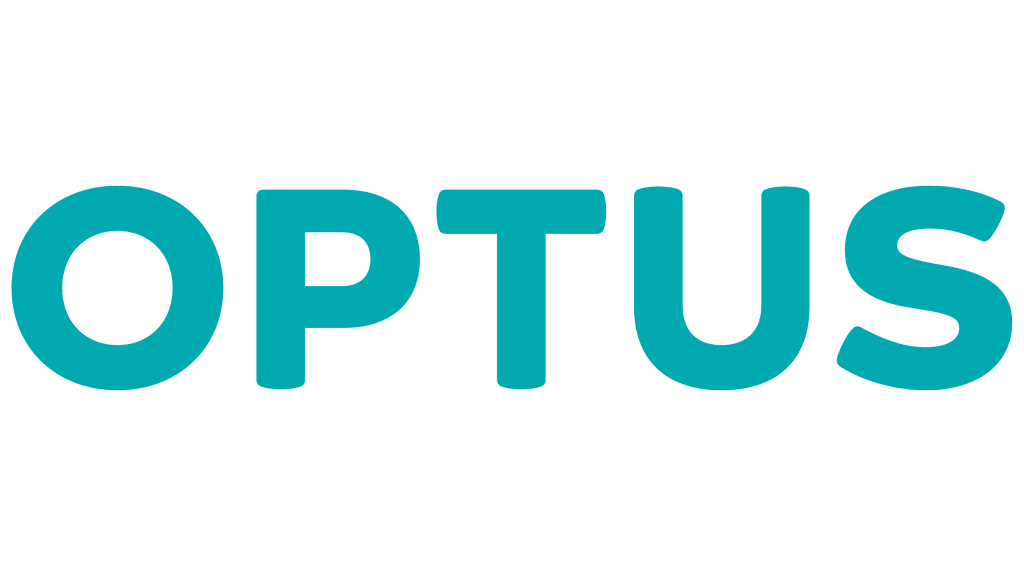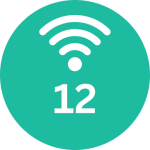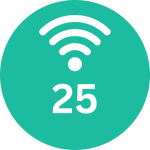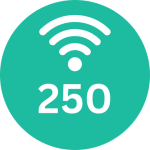




We’ve partnered with Econnex to bring you a range of internet plans to help you compare them.
With the NBN’s rollout across Australia almost complete, it’s more important than ever to take the time to find the most suitable plan for your needs which is available in your area. You can do just that with Savvy, as you can compare a range of offers from trusted Australian providers based on their speed capabilities, pricing, data allowance and more. Start comparing with us today!
What is the NBN?
The National Broadband Network (NBN) is a high-speed broadband network infrastructure initiative established in Australia. Its primary goal is to provide faster and more reliable internet access to homes across the country. The NBN project was launched to replace the existing aging copper-based network with modern and advanced technologies to meet the increasing demand for high-speed internet services.
The network aims to bridge the digital divide by providing equitable access to high-speed internet across urban, suburban and rural areas. It offers various speed tiers to cater to different user needs, from basic web browsing to streaming, gaming and working from home. The rollout has been a complex and ongoing process, involving collaboration with different telecommunications companies and local communities.
The NBN infrastructure is regulated and managed by NBN Co, a government-owned company responsible for the deployment, maintenance and expansion of the network. You can choose from a range of NBN plans offered by various internet service providers (ISPs) that utilise NBN infrastructure.
Overall, the NBN represents a significant effort to modernise our internet infrastructure and provide improved connectivity to citizens all around the country.
How do I choose the right NBN speed tier plan for my needs?
There are six speed tiers when it comes to the NBN, so it’s important to understand how each of them works and whether they’re the right option for you when deciding on your internet plan. The different speeds available are as follows:
NBN 12
The slowest available NBN plan, NBN 12 (also known as Basic I) is also often the cheapest available. This connection offers download speeds of up to 12Mbps and upload speeds of 1Mbps, making it most suitable for very light use from a single-person residence.
NBN 25
The next step up is NBN 25 (Basic II), which is capable of reaching download speeds of up to 25Mbps and upload speeds of up to 5Mbps. This could be the tier of choice for households of one to two people with slightly higher internet usage than NBN 12.
NBN 50
With maximum speeds of 50Mbps and 20Mbps for downloads and uploads, respectively, NBN 50 (Standard) plans are by far the most popular among internet users in Australia. This is down to its versatility, being suited to a mid-sized family of light to medium users or a one to two-person household of heavy users.
NBN 100
Like NBN 50, NBN 100 (Fast) plans are more versatile than the lower speed tiers. Through its 100Mbps download and 20Mbps to 40Mbps upload speeds, it can be useful for large families or smaller ones with extremely heavy users.
NBN 250
NBN 250 (Superfast) was one of the two additions to the initial NBN speed tier lineup, enabling users to potentially reach maximum speeds of 250Mbps and 25Mbps for downloads and uploads, respectively. These plans are more expensive and can be useful for large families or sharehouses of moderate to high users.
NBN 1000
The most powerful and expensive NBN plan currently available on the Australian market, NBN 1000 (Ultrafast) is theoretically capable of reaching download speeds of 1Gbps and upload speeds of 50Mbps. However, such fast downloads usually aren’t possible in peak times and aren’t accessible Australia-wide yet. Those who rely on consistent high-quality streaming and online gaming may prefer the greater power associated with these plans.
How do I compare NBN plans?
There are many areas to consider when comparing NBN plans, including the following:
- Speed tiers: identify the available NBN speed tiers in your area. Consider your internet usage needs and match them to the appropriate tier.
- Data allowance: check the data allowance offered in each plan. Consider how much data you typically use per month for activities like streaming, gaming, browsing and downloads, as this will help you avoid catching yourself short or paying for data you don’t need.
- Monthly cost: compare the monthly costs of different plans across providers. Take note of any promotional pricing and be aware of whether the price will increase after a certain period.
- Contract length and terms: determine the contract length (such as 12 months) for each plan or if there are no contract terms. Be aware of any early termination fees if you decide to cancel the contract early.
- Installation and setup fees: look for any upfront fees associated with installation, setup or equipment rental. You may prefer plans which offer waived or discounted setup fees.
- Equipment provided: check if the ISP provides a modem as part of the plan or if you need to purchase your own. You may be able to save by buying your own modem or taking advantage of a free modem through your provider.
- Additional benefits: explore any additional perks offered, such as streaming service subscriptions, to determine if they’re worth it.
- Upload speeds: evaluate the upload speeds offered by each plan, especially if you engage in activities that require uploading large files or video conferencing.
- Peak and off-peak speeds: research whether the plan has consistent speeds during peak usage times (evening) and off-peak hours, as these may give you an idea of the top speeds you’d be able to access.
- Coverage and availability: confirm the provider offers services in your area and check for coverage maps to ensure a reliable connection.
- Flexibility to upgrade/downgrade: check if the ISP allows you to easily upgrade or downgrade your plan based on changing needs.
- Data speed guarantees: some providers offer data speed guarantees, meaning you’ll never experience speeds below a minimum level.
Why compare internet plans with Savvy?
The entire comparison process is free with us, meaning you can use it as many times as you like.
You'll be able to consider competitive offers from some of Australia's leading internet providers before you buy.
You can compare plans 24/7 with our online form regardless of where in Australia you're living.
What NBN connection types are available?
Fibre to the Premises (FTTP)
FTTP involves laying fibre optic cables directly to homes. It provides the highest possible speeds and reliability.
How it works: fibre optic cables transmit data using light signals, allowing for extremely fast data transfer. These cables are connected to an Optical Network Terminal (ONT) inside the premises, which converts the light signals into electronic data that can be used by devices.
Fibre to the Node (FTTN)
FTTN connects fibre optic cables to distribution points (nodes) in neighbourhoods, with the final connection to individual premises using existing copper lines.
How it works: fibre optic cables transmit data to a node, which then sends the data over the existing copper lines to individual homes. The longer the copper line, the more the potential for speed degradation due to distance.
Fibre to the Curb (FTTC)
FTTC is similar to FTTN, but the fibre optic cables are connected to a distribution point on your street, which is closer to individual premises.
How it works: fibre optic cables connect to a Distribution Point Unit (DPU) located near the premises. The DPU then uses existing copper lines for the last stretch of the connection to the premises, minimising the distance copper travels and potentially improving speeds.
Fibre to the Building (FTTB)
FTTB involves connecting fibre optic cables to a building's communications room or basement and the final connection to individual premises is made using existing copper or internal wiring within the building.
How it works: fibre optic cables are terminated in the building's communications room. From there, the connection to individual apartments or units is established using existing copper telephone lines or internal building wiring. The quality of the final connection depends on the building's internal wiring and distance from the communications room.
Hybrid Fibre Coaxial (HFC)
HFC repurposes existing pay or cable TV networks (like previous Foxtel connections) to provide high-speed internet access through coaxial cables.
How it works: coaxial cables transmit data as electrical signals. The existing cable TV network is upgraded to support internet services. Data is sent from a local exchange to a Network Termination Device (NTD) at the premises through the coaxial cable.
Fixed Wireless
Fixed wireless uses radio signals to connect premises to the NBN network, primarily in rural and remote areas where laying cables is challenging.
How it works: a wireless tower transmits signals to a fixed antenna installed on the premises. This antenna receives the signals and converts them into data that can be used by devices.
Satellite
Satellite connections, which are made possible through Sky Muster satellites are used in remote areas where other types of connections aren’t feasible.
How it works: satellite dishes on the premises send and receive signals to and from NBN's satellites in orbit. The satellites relay data between the dish and the network's ground stations.
The pros and cons of NBN plans
In terms of its maximum capabilities, the NBN blows other connections, such as ADSL, mobile broadband and home wireless, out of the park with its potential speeds.
NBN plans are more reliable in terms of expected speeds and often come with less variation than you might see with a mobile or home wireless broadband plan.
Unlike some home or mobile wireless connections, many NBN plans come with unlimited data usage, which can bring peace of mind that you won’t run out.
Six options for the speed you’re able to access is a significant amount of choice to provide customers as they choose which internet plan is best for them.
The type of connection and its strength could be heavily impacted by where you live or work, with less choice of connection coming to those in certain areas.
Although the network was rolled out to replace copper cables, budget limits have meant that the Australian Government is now incorporating these cables into NBN connections.
Unlike home wireless or mobile broadband connections, which essentially only need to be plugged in or turned on, the process of installing NBN is much more complicated.
Top tips for improving the speed of your NBN plan
Check your speed tier
Confirm that you're subscribed to the appropriate NBN speed tier for your usage needs. Upgrading to a higher speed tier can provide faster download and upload speeds if your current plan doesn’t meet your requirements.
Reduce network interference
Minimise the number of devices connected to your network, especially those which are actively using bandwidth-intensive activities. Disconnect devices from the network when not in use and ensure your router's firmware is up to date.
Check for network congestion
If you experience slower speeds during peak hours (usually evenings), it could be due to network congestion. Contact your ISP to inquire about peak usage times and whether they offer any solutions for managing congestion.
Optimise your Wi-Fi setup
Place your router in a central location within your home to ensure better coverage. Avoid placing the router near walls, large metal objects or electronic devices which could interfere with the signal.
Frequently asked questions about NBN plans
Does it take a long time to install the NBN for my internet plan?
Timeframes for NBN installations can vary substantially depending on where you are, what the situation at your premises is and the provider you choose to go with. In terms of the time between booking the appointment and the date of the installation, you may to have to wait between two and six weeks. Once there, it'll probably take several hours, depending on the nature of the installation.
Who is the best NBN plan provider for me?
The best provider will be different for everyone, as this ultimately comes down to your needs as an internet user and the plans available. You may opt for a larger ISP who can offer a wider range of products and greater customer service, or you might simply look to purchase a cheaper plan which can offer you the same or similar value at a lower price.
Should I avoid lock-in contract NBN plans?
Lock-in contracts can prevent you from moving to a different and better ISP or plan while under the conditions of your current agreement without having to pay fees (which can be substantial). These usually last at least between one and six months. However, a benefit of lock-in contracts is that they may end up saving you money by waiving initial fees which are typically charged by no-contract NBN plans. Ultimately, whether you should avoid lock-in contracts comes down to your preferences and needs as an internet user.
What are the cheapest unlimited NBN plans?
The cheapest NBN plans with unlimited data usage are NBN 12 and 25 plans. However, these obviously won’t suit everyone, so if they don't meet your speed needs, you should look for the cheapest plan without a data cap which can provide the speeds that you, your family or your business needs.
Should I compare NBN plans based on evening speeds?
Yes – evening speeds are the primary barometer for NBN plans, as that’s when they’re set to experience the most traffic on their servers. As such, they may not be at the maximum capacity with every ISP. If the bulk of your internet usage comes in the evening, you should look at your ISP’s evening download speeds to ensure you aren't missing out on higher-quality internet when you need it most.
Can I bundle my NBN plan with other services with the same provider?
Yes – bundling can be an effective way for you to save money on not just your NBN plan, but other services as well. You may find a deal to take out your NBN plan alongside a mobile phone plan with the same provider and pay at a discounted rate for both of them.
Helpful guides on internet plans
Disclaimer:
Savvy is partnered with Econnex Comparison (CIMET Sales Pty Ltd, ABN 72 620 395 726) to provide readers with a variety of internet plans to compare. We do not compare all retailers in the market, or all plans offered by all retailers. Savvy earns a commission from Econnex each time a customer buys an internet plan via our website. We don’t arrange for products to be purchased directly, as all purchases are conducted via Econnex.
Any advice presented above is general in nature and doesn’t consider your personal or business objectives, needs or finances. It’s always important to consider whether advice is suitable for you before purchasing an internet plan. For further information on the variety of internet plans compared by Econnex, or how their business works, you can visit their website.











































